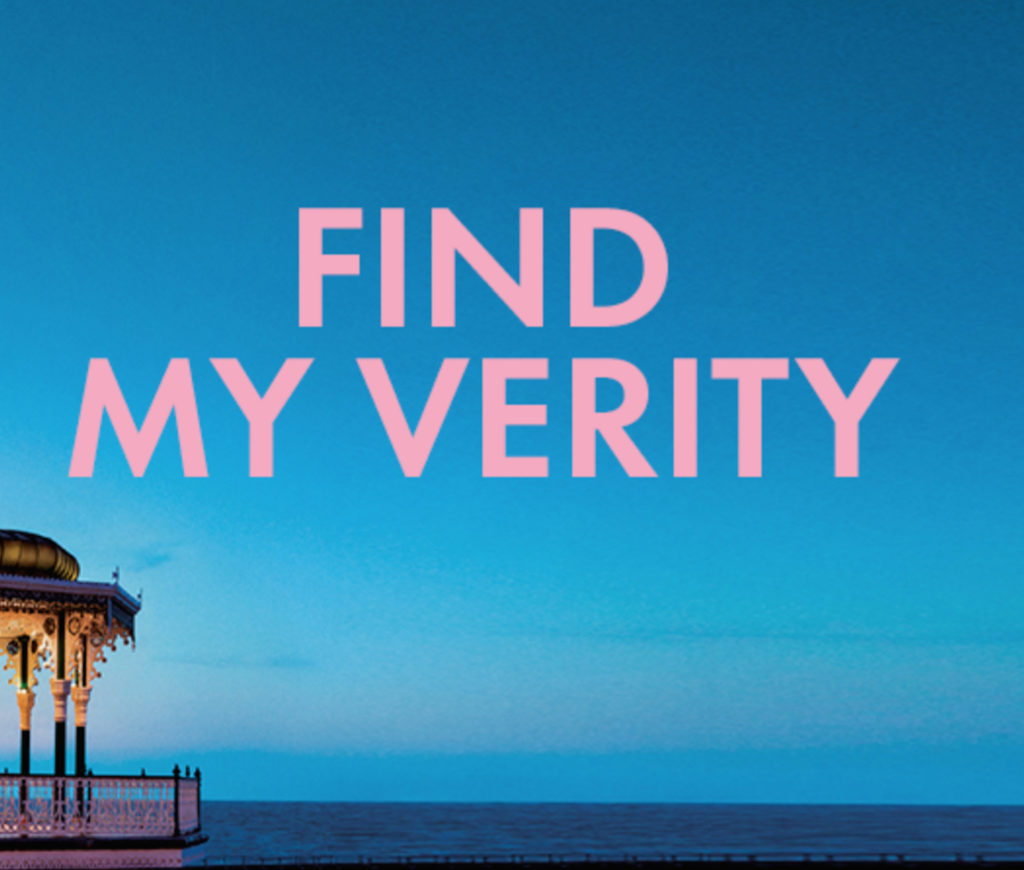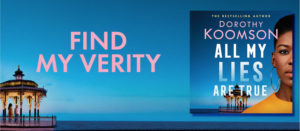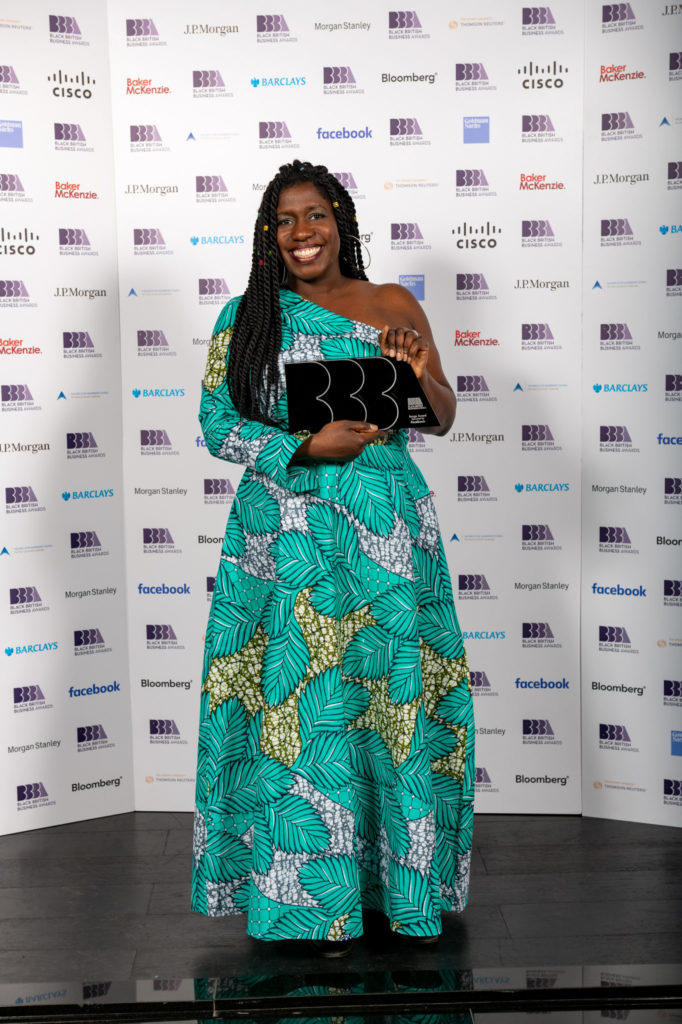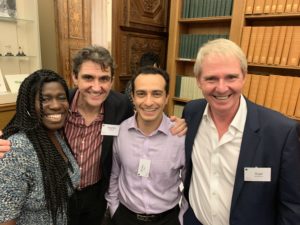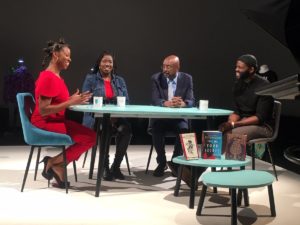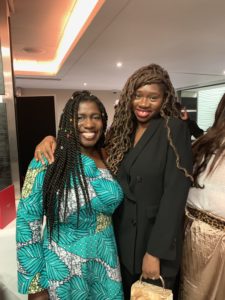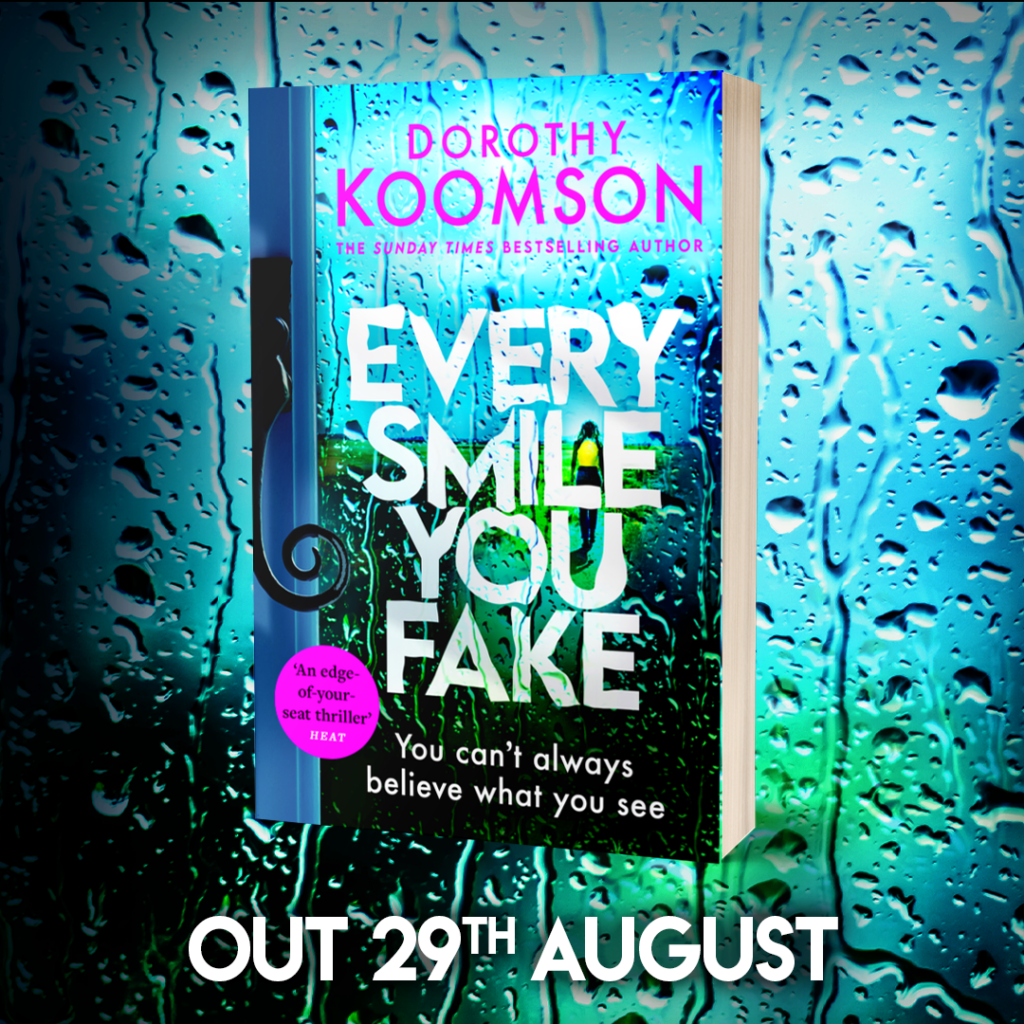
Every Smile You Fake Extract
Prologue
Please take care of my baby. You’re the only one I can trust with him. His name is Arie.
I don’t want to do this, but I have to. So please don’t try to find me. You’ll put him in danger.
I’ll be in touch as soon as I can. X
Part 1
Kez
16 May, Shoreham
‘This isn’t so much a question as an observation,’ he says.
We’re in Smithdowne Community Centre, a large community centre-cum-library space near Shoreham on the south coast, and this man stands among the 100-strong audience of book lovers, holding the microphone, as he prepares to hold forth.
Every time. Every. Single. Time. There is a someone – usually a man – who will stand up and say this very thing.
This evening began a couple of hours ago at eight p.m. The audience had settled down in their padded blue fold-down seats, and mic’d-up local Sussex crime fiction author Remi Hayford strode out onto the stage and sat down in the blue bucket chair at the centre of the three chairs, ready to talk about her latest book.
Next came the interviewer, Lucy Tumanow-West, an experienced journalist whose work had been in pretty much every national and local publication. She strode onto the stage and went for the furthest seat, next to Remi.
And then came me, radio mic black box in hand because I did not have pockets large enough for it, walking almost apologetically onto the stage to take my seat on the other side of Remi.
Lucy, the interviewer, had gone quickly through her housekeeping – in case of a fire, etc., etc. – and then had asked Remi to introduce herself and the newest book.
‘The Last Dancer At Brightfell Hall is kind of a locked-room mystery set on a crumbling Sussex estate where the inhabitants hate themselves almost as much as they hate each other,’ Remi had begun. ‘Something happens that brings members of the wider family together at the estate and pretty soon they are all trying to bump each other off for profit, revenge and/or fun.’ As Remi laid out more of the plot the audience lapped it up, hanging on her every word until everyone was rapt, on the edge of their seat, gagging to hear more. It was at this point Lucy turned to me and asked me to introduce myself.
After Remi had whipped everyone up, I knew what I said would barely register at first. But ‘My name is Kez Lanyon,’ I’d dutifully replied, speaking slightly to Lucy but mainly aiming my words at the audience. My voice came out as clear as Remi’s and Lucy’s but not as confident. They were used to doing this, I was not. ‘I’m a psychotherapist and profiler,’ I continued. ‘I usually work with companies to give them insight into the dynamics of their staff relationships and how they can improve company culture across their organisation. I used to do a lot of private practice therapy work with individuals, couples and sometimes families, and I have occasionally helped the police as well as working in prisons and other institutions, but I mainly stick with profiling for companies and organisations nowadays.
‘Profilers and psychologists like me often help writers when it comes to researching the criminal mind – although not all psycho- paths and sociopaths are criminals, many of them become fully functioning members of government . . . I mean, society.’ That had caused a few titters and had eased us into the conversation.
It’d been a pleasant evening and the audience seemed to enjoy them- selves as Remi did most of the talking and I provided any additional information. And then Lucy had thrown the floor open for questions.
So far I have done seven events with Remi, and I’ve found that most people are nice, fascinated and have genuine curiosity when they ask a question. But there is always one. Always one that has ‘an observation more than a question’.
And tonight it is this man.
This man who holds the microphone in his left hand like it is a chicken he is trying to choke, while his right hand is up and ready to gesticulate his verbalised ‘observation’.
I can feel Remi cringe and then internally sigh beside me. Because every time someone has not so much a question but an observation, every time someone starts to speak in that way, she knows it’s going to go something like this: ‘I’m sure your story is very nice and all, but you have to admit it is a bit far-fetched even for fiction, because I’m not sure they’d let someone as unstable as your character be in charge of a serial killer case. It’s fiction, but to be taken seriously, you have to at least allow your story to fall within the bounds of reality, and, with all due respect, I’m not sure it does, does it?’
When none of us on the stage reacts, he continues: ‘What, I suppose, I take issue with is this assertion that you can “profile” people based on nothing more than their briefly observed behaviour. You make a lot of how your story is based in reality and psychological pro- filing, how we can all work out other people’s motivations and their “sins” just by talking to them for a few minutes, seconds you said, seconds, wasn’t it?’ He’s pointing at me, talking to me now. ‘I suppose my question is that . . . no, no, not question, observation . . . is that saying stuff like that can be dangerous. It can give people ideas. We all know this is all a pseudo-science, at best, so I think you should be a little more careful about pushing this stuff.
‘It’s all well and good making up your nice little stories, and I expect you find some comfort in it, but you should be careful about parading what she says,’ pointing at me again, ‘as anything other than a fantasy that you write down in those books of yours.
‘Don’t get me wrong, don’t get me wrong, this is all said with the greatest of respect, I couldn’t do what you do, it would be too unbearably trivial, but just be careful, in case you and your hobby harm women, hold them back by giving them unrealistic ideas and expectations.’
Remi has written six books so far. Every one of them has been created while she juggles a full-time job and children and a wife. Writing books is not a hobby, it is her second job; the small amount of money she makes from it is what keeps her family afloat some years. And this man has dismissed all that. With his kindly delivered words, mendaciously dressed up in ‘all due respect’, he has trashed the importance of her work as well as the significance of her life.
We’ve had this type of ‘observation’ before, but not this bad.
I joined Remi on her Last Dancer At Brightfell Hall tour at the very last minute. Usually Remi works with a criminal psychologist and she was down to take part in these events with her but then said expert had broken her arm. It wasn’t so much the arm-breaking that had caused the problem – it was the afterwards. After she’d fallen in the street, after she’d broken her arm, after she’d somehow managed to get seen and sorted in record time – she went home earlier than expected and discovered that her husband’s idea of ‘working from home’ involved screwing their neighbour in their eldest child’s bed.
‘How the hell he got away with it for so long, I’ll never know,’ Remi had said when she rang to manipulate me into stepping in. ‘And ewww, for his child’s bed when other beds are available.’
Remi and I met years ago during the time I was heavily pregnant and would take my stepson, Moe, who was nine, to Hove Park so he could have a run around and play football. I’d seen Remi a few times, a friendly face who regularly said hello among the blur of trying to keep myself going, and then one day, when I just couldn’t peel myself off the bench where I’d practically collapsed, she came over and started playing football with Moe. We were friends for life after that.
I truly valued our friendship, which was why I’d told her more than once when she’d asked for advice, that I wasn’t going to give it to her. As far as I was concerned, our relationship was too precious to sully by letting our occupations collide. But the moment I’d answered the phone and she’d started to recount the tale of what had happened to her expert, I knew I’d end up doing it. Of course I would. How could I say no when she was so desperate?
‘Do you understand what I’m telling you?’ the man with the observation and not a question asks. ‘There isn’t anything necessarily bad in what you’re doing, but it can be dangerous if you carry on unchecked.’
‘There’s always one,’ Remi had explained to me on the train home from Birmingham after our first joint event, which had been sold out. ‘There’s always one person who wants to make you feel small and dismiss your work as trivial.’ I’d been to her book events before as a regular punter and I’d seen it happen, but it’s a whole new ball game when you’re the one sitting on the other side of the microphone. When it’s you the person with the reasonable voice and the passive-aggressive hand gestures is trying to diminish.
This guy is a bit worse than the others, though. There is something deeper, more targeted and personal in his aggression. I look to the woman sitting beside him. Her gaze is trained fixedly on the parquet floor, her mouth is a set line, her shoulders are hunched as she tries to make herself small, invisible. This man is not just getting at Remi and me, he is trying to put his wife back in her place.
‘Do you understand what I’m saying?’ he repeats to the silence that has followed his tirade. People in the audience, readers who have shown up for a talk by a local-ish author and to hear the stories behind the books, are looking embarrassed for him. He doesn’t realise that. He is so lacking in self-awareness that he thinks the silence is every- one being awed by his brilliance, being impressed with his very public take-down of two people who’d clearly got above themselves, while he simultaneously reminds his wife that anything that matters to her is pointless, meaningless.
He waits to see if any of us are going to argue with him, and the triumph on his face is almost too much to bear.
This book is personal to Remi. Into the framework of the story, the scaffolding of the plot, the structure of the characters, she has woven pieces of herself, elements of her life. Her story is there on the pages of this book; her life and heart are on display in a way that they haven’t been before. It has taken her years to be able to open up like this, to show the hurt, to hint at the healing that is going on, to examine for herself how far she has come. That is why she needed an expert with her – she needed a shield. She needed someone for the audience to focus on so they would not see that this story of a dancer, damaged and hurt, who finally stands up to her past so she can create a better future, is all about what Remi has been through, what she has come through, what she is moving on from.
And this man, this ‘person’ has decided to trash that.
Remi is not going to respond. It’s the best way, in these situations, to pretend it’s not happening, to not allow yourself to be publicly dragged into the muck he’s spreading, but her silence doesn’t mean she isn’t hurting.
‘Well, erm, thank you for that,’ states Ameena, one of the events managers who was in charge of funnelling the questions from the floor, moving to take back the microphone. She has a rictus smile on her face, her body is tense. I wonder how many times she’s had to throw an apologetic look at a stage guest, while smiling at the person who has just insulted or, in this case, hurt said guest.
I stand, scooping up the black radio mic box as I come to my full height. At the same time, I feel rather than see Remi’s smile freeze on her face. She knows what’s coming and she’s . . . well, she’s a hair- breadth away from shouting to the man, ‘Save yourself! You can still save yourself if you take it all back! Say sorry and save yourself!’
‘I do understand what you’re saying,’ I tell him, my voice more confident now. ‘What I think you’re saying is that a little knowledge can be a dangerous thing. For example, with the minuscule amount of knowledge that I have, I can’t completely work out if you were four- teen or fifteen when you first tried your sister’s hair conditioner.’
Everyone falls silent and Ameena has frozen mid-reach for the microphone.
‘I’m joking, I’m joking,’ I say. ‘It was, of course, your mother’s really expensive, special conditioner that you used almost all of and it was your sister that you let take the blame for it.’
The man becomes rigid, petrified at what I’ve just said. I’m right, of course, and he has no idea how I know.
‘I just can’t work out how many times, exactly, your sister got slapped about it while you pretended to know nothing.’
The man’s sallow, scooped-in cheeks start to colour, the red rising up from inside his collar.
‘I’m guessing your wife knows it’s you that uses her conditioner now?’
A few titters escape from the mouths of the mostly silent audience, and he whips his head around to glare at them to shut up because there is nothing funny about this.
He’s right, there is nothing funny about this.
‘I think your status as most favoured child in your family has created a sense of entitlement in you that has continued into adult life but has never been adopted by anyone outside of your households. I mean, your job is boring and everyone else seems to get the promotions before you, and yes, even those pesky women and brown people and, gasp, brown women.
‘Your children have never excelled at anything, so you avoid all con- versations about offspring achievements because you can’t even bring yourself to be proud of them for trying or simply being who they are.
‘You’re the butt of your friends’ jokes but can’t understand why because you think you’re the life and soul of the party. I’ll give you a hint why – it’s cos no one likes you. And I’m pretty sure no one will ever say you’re the first to put your hand in your pocket to get a round in cos you always “mysteriously” disappear when it’s your turn at the bar.
‘You truly believe the world is out to get you, which is how you explain why you’ve never amounted to anything. The reality is, mate, the world doesn’t even know you exist.
‘But, I think the most important thing I’ve learnt about you here tonight is this: I would not be saying any of this to you if you’d just sat there and let your wife enjoy her books in peace. You came here tonight because your wife read Remi’s latest book, loved it and was probably so excited to talk to her book group about it that she made the mistake of mentioning how much she loved it to you.
‘How dare she, eh? How dare she decide on what she does and doesn’t like. So you read it, and were outraged to find it was full of empowered women who don’t need relationships or men to live their best life. And that’s your worst nightmare, isn’t it? The idea that women could survive without you. So when your wife booked to come hear Remi speak, you decided to come put that writer in her place so you could put your wife in her place. Job done, I suppose.’
His face is a rock-solid mask of horror. No one is meant to know any of that, let alone all of that about him. And if somehow someone does find that out about him, they’re not supposed to say it out loud.
I pause . . .
One beat . . .
Two beats.
I smile the biggest smile; giggle the girliest of giggles.
‘How did I do?’ I say, softening my expression, opening my hands, raising my shoulders in cringing surrender. ‘I mean, what I do is a pseudo-science right? I’m probably way off base, aren’t I? Go on, you can tell me what I got wrong. I can take it.’
My smile becomes a wide grin, and the people in the room almost collectively let out their breaths. No one was sure what to make of what I was saying, if the words were jibes or truths, if they were moments of insight or seconds of me being a bitch. Now my smile, my laugh, my self-deprecating body language and words have put them at ease. ‘I was way, way off base, I bet, yeah? Because no one could be like that, live like that, could they? At least, not in real life.’
‘You just couldn’t leave it, could you?’ Remi will most likely say to me at some point. ‘You just can’t stop yourself reading someone for filth and then smiling afterwards. Leaving it is an option, you know.’
‘Not for me it’s not,’ I’ll have to reply. ‘It’s really, really not.’
Brandee
BrandeeH | @Brandee2ees | Joyn Inn Video | Status: All Joyn Inn | * February 2020 *
Hi there! Thanks for dropping by my Joyn Inn page. Haha! I’ve just got why it’s called Joyn Inn – cos they want people to join in! Honestly, I was today years old when I realised that’s why private videos are called Joyn Only Me, public ones are called All Joyn Inn and ones for select people are called You Joyn Me. Oh wow! I have only just got that after being on this app for like ten years! Haha! Don’t scroll away, I’m not completely ditzy, I promise.
All right, so. About me. I’m Brandee, two ees. You might already know my name and my face though cos my mum is kinda famous. I’m not going to link her in this cos we aren’t in the best place right now.
Please don’t you snitch link either. I’m sure she’ll find this video soon enough.
She became famous for her parenting blog, that became a series of videos and posts on various social media sites. She’s a parenting expert and has a spot on a couple of radio shows, a magazine column. She’s got over a quarter of a million Joyners. Oh wow! Just got that, too.
But I’m twenty, I live in Brighton and I started this channel cos I need a voice. I need a way to set the record straight when The Mothership does her thing.
My favourite things in the world are spending time with my BF, reading, drawing and learning. Weird, I know, but also really true.
I feel we’re going to get to know each other a lot better over the next while, so I’m not going to say too much now. Let me know in the comments who you are and what your interests are. And also what sort of things you’d like to see from me.
And please DON’T SNITCH LINK MY MOTHER. Peace In.
Kez
16 May, Shoreham
Remi hugs me at the glass front doors to the Smithdowne Community Centre, when her shiny silver taxi pulls up. The driver clicks on his meter as I fold my arms around my friend. The bookseller, Carolynn, from Brighton told us that she’d sold all the books and had to take people’s names and addresses for back orders – a first, apparently – so Remi is happy.
While I was watching Remi sign books, chat and have her photo taken with her fans, a few people had come up to me saying, ‘do me, do me’. I had dutifully ‘done them’ and none of them had been taxing. I hadn’t gone anywhere near as deep as I did with the other man, but they walked away satisfied that they were ‘doable’ but also enough of an enigma, enough of an individual, that I didn’t get everything right.
It’s complicated to explain to people that it is their individuality that makes them profileable. If they were like everyone else, then I would have serious problems working out what made them tick. Like that man, I could tell from the way he had styled his salt-and-pepper hair that he had spent years going to hairdressers instead of barbers, and years trying to find the right products to make it glossy, shiny and manageable. He had been at that a long time, so likely started young. When he was younger, men spending so much time on their looks and hair was frowned upon unless it was to use Brylcreem or the like. His hair obsession had started when he was young and it was a secret, and his contempt for women would have allowed him to let someone else take the blame for using his mother’s products.
His reaction to what I originally said about his sister had shown me that I was right about him, that I had been right about allowing some- one to take the blame for him. This would have grown as he grew, this would have become more entrenched – his sense of entitlement, his refusal to accept responsibility, the idea that his children not excelling reflected badly on him, the fact that he was a thoroughly unpleasant person. It was all there because he wasn’t like everyone else, because he was unique enough to stand up and try to tell off Remi and me.
Explaining to people that being unique makes them more profile- able is difficult because it is counterintuitive and hard to make understandable. So I let people think that their uniqueness, their individuality makes them difficult to decipher, when it’s actually the opposite.
‘I’ll see you soon,’ Remi says, as we loosen from the hug.
‘Yes, I’ll see you soon. This was an interesting event to end on.’
‘I can’t stop thinking about that guy’s face,’ she says in a low voice.
‘I thought he was going to rush the stage and pass out and spontaneously combust all at the same time.’
‘Yeah, I think I might have gone a bit too far,’ I reply. I do regret it when I – as Remi says, ‘read people for filth then smile’. I don’t like to hurt people, and I do sometimes wish I had the capacity to not respond when people did bad things.
‘No, you didn’t,’ Remi reassures. ‘Didn’t go far enough as far as I’m concerned. He was so unpleasant. He came here with the sole intention of hurting me and now he’s the walking wounded. No one asked him to come here. Talk about bringing it on yourself.’
The man and his wife had left the moment everyone stood up. I felt bad for his wife – she’d probably come to get her book signed, maybe have a chat with the author, and her husband had ruined that for her.
Remi hooks her face mask into place before she climbs into the back of her taxi heading home to Haywards Heath, and I take my keys out of my bag and start down the road to go to the back of the centre to the car park. I should have nipped out earlier to move my car to the front of the centre, but I had been so caught up in talking to people, that I’d forgotten. Now Ameena and her staff have gone so I can’t go through the centre to the car park, I have to go on the road.
When I pulled up, it’d still been light and I hadn’t realised quite how many streetlights weren’t working in this area, nor how desolate it can feel around here. Shoreham is nice, and this area is nice, but at this time, it’s taken on a menacing atmosphere. The sprinkles of broken glass and litter that have collected at the base of concrete bollards, and scrappy bits of grassy areas make me feel like I’m walking in a dysto- pian landscape that a series of movies will be made about that will become cult classics. And it’ll start with a woman walking to her car late at night before she’s surrounded by a group of ne’er-do-wells on bikes.
It’s a good thing you’re not overdramatic or anything like that, I tell myself as I turn the corner to the car park. I stop for a moment and my heart sinks as I’m reminded exactly where I parked.
And it’s a good thing I’m not parked right at the other end of this empty car park so I have to walk all that way on my own, in the dark, with my overdramatic sense of fear weighing me down, I add.
This is the type of night that is more menacing than dark. It’s the type of night where bad things lurk, where stories are changed, lives are ended. Rational or irrational, it’s the type of night that makes me frightened.
I’ve been in more than one life-threatening situation, I know that it rarely starts like this, but my heart is already beating faster, my breath is becoming shallow, my skin is clammy. I start to move across the car park, wishing to be in my car as soon as humanly possible.
I sense it before I hear or see it – movement to the side of me, some- one stepping out of the shadows, intentionally coming at me. Someone in the night, coming to get me, to change this part of my story or even end it.
‘I want a word with you!’ he hisses as I move back and sideways to avoid a blow that I thought was coming.
The voice is familiar even behind the threat. It’s him. The man I humiliated earlier. And I’m guessing, he wants more than a word with me. I suspect, he wants several words with me. And probably more than words, now I see how his hands are clenched in fists.
I didn’t notice before how large his hands are. Nor how generally huge he is. When I was on the raised platform, he didn’t seem so big. I might have assessed him differently if I’d known, properly, how tall, rangy, big-limbed, large-handed he truly is. He is massive-handed. He could do a lot of damage with those hands.
I wouldn’t have said anything different to him, I would have just logged in my mind that he was a physical bully as well as a mental and emotional one.
‘You’ve got a lot to say in front of an audience, haven’t you?’ he snarls.
The terror suddenly grips like a vice, clenching my heart, my stomach, my chest. Danger radiates from him like a neon sign. He is going to do me real harm.
‘Now it’s just you and me, say it again. To. My. Face.’
His wife is two steps behind him, embarrassed and terrified at the same time. This isn’t the first time she’s been in this situation, I can tell. Had I known the true size of him, I would have realised that he would not slink away, tail between his legs, to rant at his wife, ban her from book club and throw out all of Remi’s books. If I had known he was a physical bully as well, I would have expected him to wait for me in the car park.
‘Say it to my face,’ he threatens, coming even closer. ‘If you think you’re so clever, say it to my face. Right now.’
I’ve been trained to defuse a situation, I know what will stop this thing from escalating. How well-delivered words, suppliant body language, considered facial expressions, can take the heat out of the moment, can calm everything down so everyone walks away with their dignity intact and their bodies undamaged.
I know how.
I know I should.
But nah.
Screw him.
‘Which part?’ I say, my tone cool. You can only hear the wisps of
the worry gripping me inside, the fear fighting with my defiance, if you know me. This man does not know me. He does not know that I can be pretty much petrified, but absolutely able to confront him in the space he has created.
He leans down into my face, his snarl taking over his whole face, pulling his lips back to show his teeth, narrowing his eyes, scrunching his nose and forehead. His wife steps forward because she knows he’s going to hit me. She knows, and she’s going to try to intervene. She’s going to grab at him, shout at him to stop, she’s going to scream at me to run. None of it will do any good. If he crosses that line and hits me, nothing will do any good.
Which is why I say, ‘Seriously, which part would you like me to repeat? I said a lot of things, which part do you want me to say again?’ I am throwing more fuel on the fire of his anger but I don’t care.
Honestly, screw this horrible man.
I have my keys hooked between my forefinger and middle finger – a weapon ready to be used, I have sensible shoes on that will allow me to run to my car, my safe haven at the first opportunity. But, no matter how scared I am, I’m not running.
He tries to make himself seem physically bigger by lowering his head even closer to mine. The orangey light from the car park casts odd shadows on his face, and adds an extra layer of menace to the air.
I have been here before.
I have been in a place where I have had to choose: stand my ground or run and hide. Fight or flight.
And I chose this, I will always choose this.
I see hesitation flit across this man’s eyebrows, the place where involuntary expressions take place. He’s uncertain suddenly.
We’re all profilers, we can all work out people with minimal information. It takes a while to be able to verbalise a person’s personality within minutes of interacting or observing them. But we can all do it. We all do do it.
This man is profiling me as he tries to intimidate me and this is what he sees: a late-forties Black woman with shiny black twists smattered with threads of grey, and a spongey body and smallish stature and smart mouth.
He sees a woman whose dark eyes have stared into oblivion. He sees a woman who has stared death in the face and has walked away.
He sees a woman who is probably traumatised, who probably relives those moments over and over, but she is still here.
And most importantly, he sees that she is not backing down.
He doesn’t know all this on a conscious level, he knows it by instinct, which is how most of us profile other people. He knows this because his usual tactic of using his size to loom over someone and intimidate them isn’t working. Usually, he just balls up those fists, he moves in a threatening way and people capitulate. They shrink away. They concede ground. Rarely does he have to follow through.
With me, he realises, he will have to.
And he really doesn’t want to do that. He’s not so angry that he could get himself into trouble with the law on a Tuesday night in May. The realisation makes him hesitate, his anger wavers, his features
are suddenly showing his uncertainty.
‘Let’s never speak of this again,’ I state and step back away from
him before I walk away.
Don’t look back. Don’t look back, I tell myself as I stride on shaky
legs towards my car. I am still trembling. Yes, I’ve been in dangerous, life-ending situations before, but that has only made me more scared. More aware of how close it’s possible to come to not surviving.
What if you’d read him wrong? I admonish myself as my breathing in my ears ramps up to hurricane levels, and my heart canters in my chest. What if he wasn’t actually a coward who hides behind his size and loud voice? What if all your profiling and psychological training hadn’t been enough, hadn’t given you enough information, and you hadn’t properly understood him? You could be lying in a pool of your own blood right now.
Being catastrophically wrong has happened before.
I thought I had a profile down, sorted. I thought I had a handle on everything; knew everything about everything. Looking back, I can see it was arrogance, it was me thinking it was possible to know every- thing about everyone.
And someone died as a result of that.
Someone died because I got it all wrong.
My hands are quivering so much, my fear is so loud in my head, I
can barely press the unlock button on my car keys. I try the handle and the door doesn’t give. I didn’t unlock my car; I’ve just locked it. That means . . . Jeez. That means I didn’t even lock my car door before I went into the event. That means my car has been sat out here, open and ready for someone to come steal it. I am a ridiculous person.
Still berating myself in my head, I unlock the car door, throw my bag onto the floor of the front passenger seat and climb in.
Once sitting, I allow my forehead to fall onto the steering wheel. I need to pause for a moment. Recentre myself. Calibrate my body so I can safely drive back.
There’s someone else in the car.
I can feel it.
I’m not alone in here.
I’m not sure when, but I’ve stopped checking the back seat before I
climb in. I used to do that as standard and now not only have I stopped doing it in general, I didn’t even think to do it when I realised my car wasn’t locked.
I wait for something to happen, for the person to do something. But nothing. They don’t make a move, don’t try to grab me.
Without lifting my head, I grope for the door handle, carefully pop the door open, and then slide out. From the safety of being outside of the car, I peer into its now illuminated interior. Then double-take.
Can’t be.
Can’t be.
I quickly open the back door to get a proper look. Staring back at me is the face of a very young baby.
CARRY ON READING here: Your chosen bookseller and here: Berts Books and here: Amazon
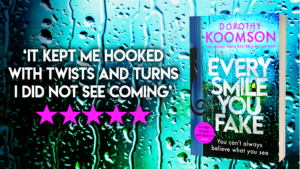
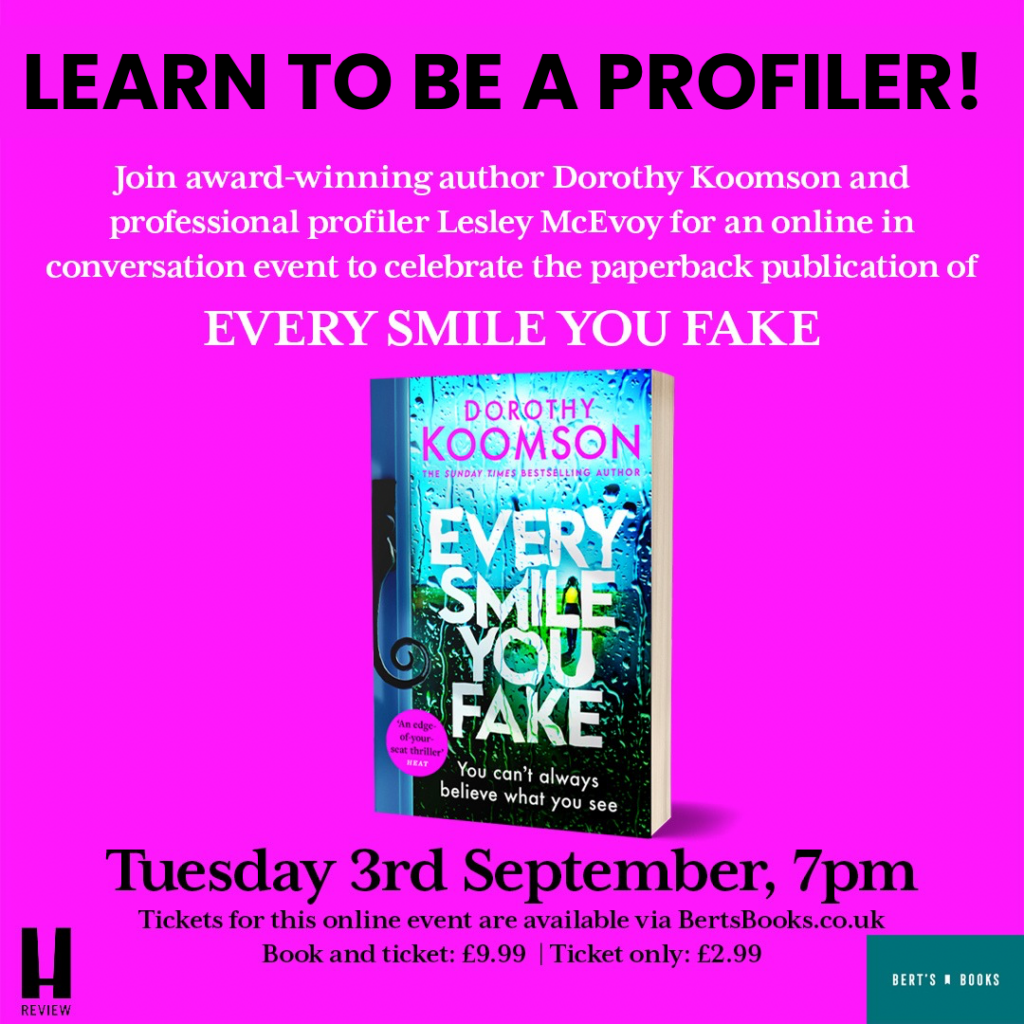
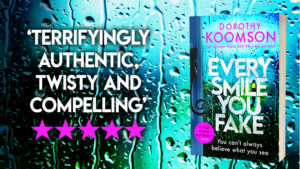
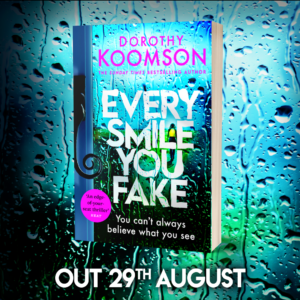
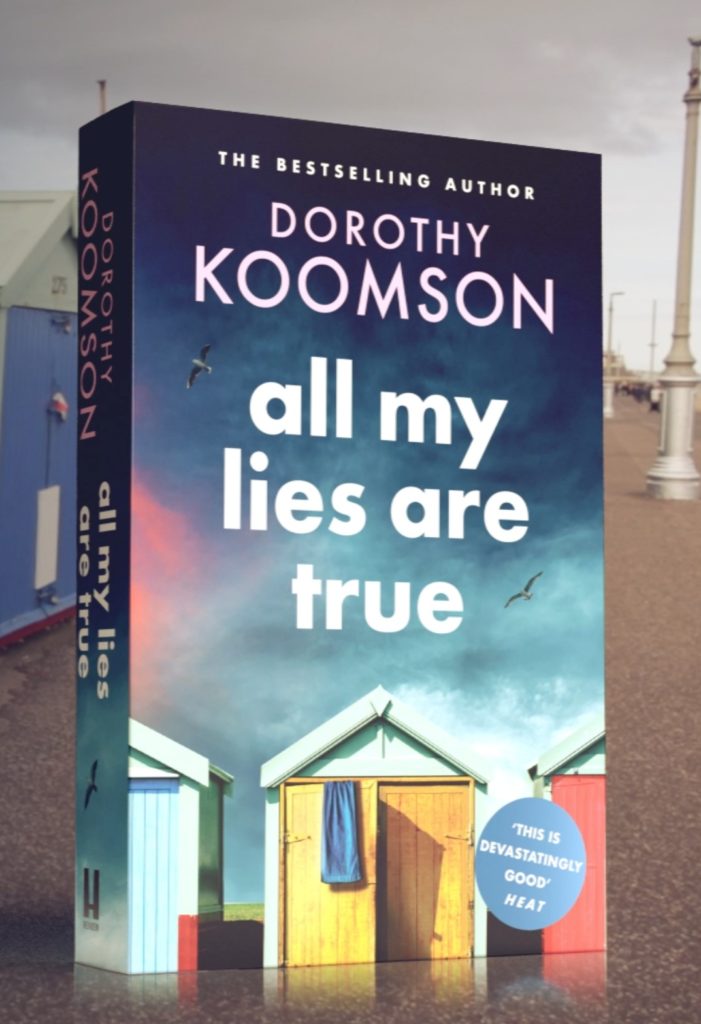
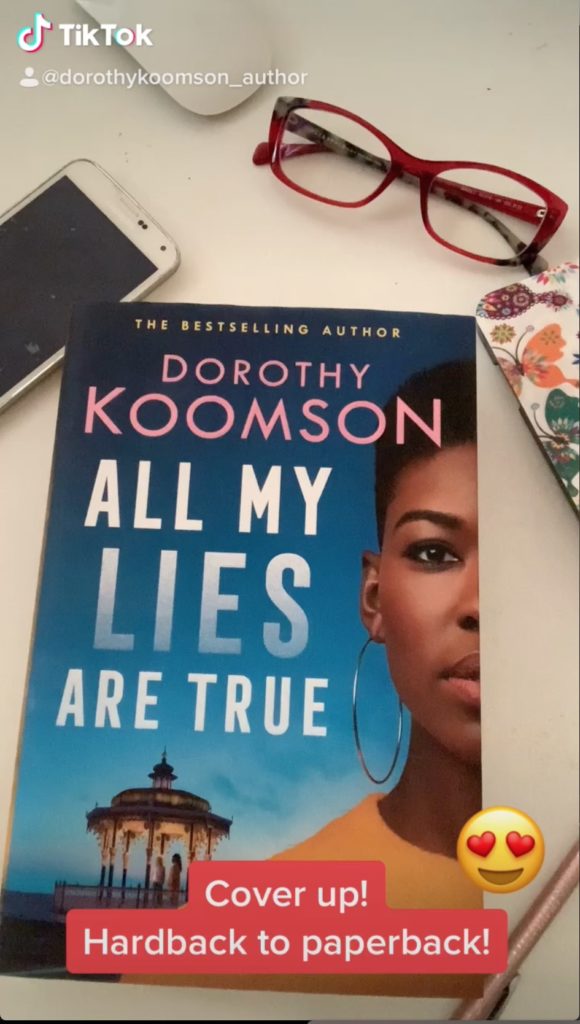
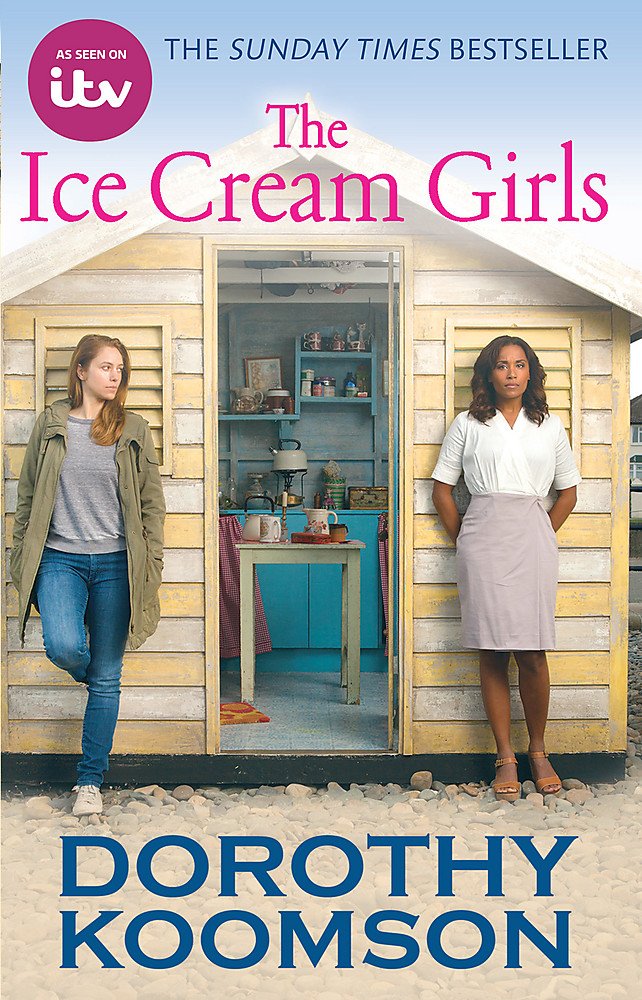


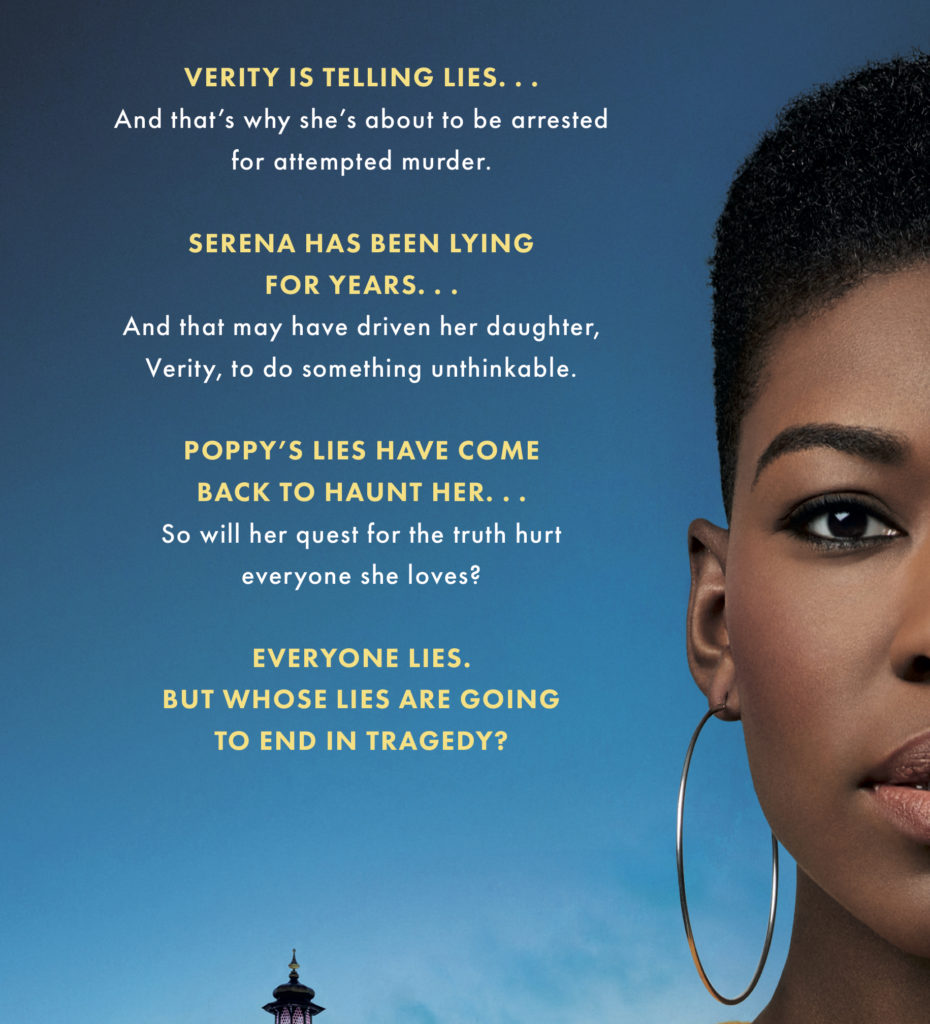
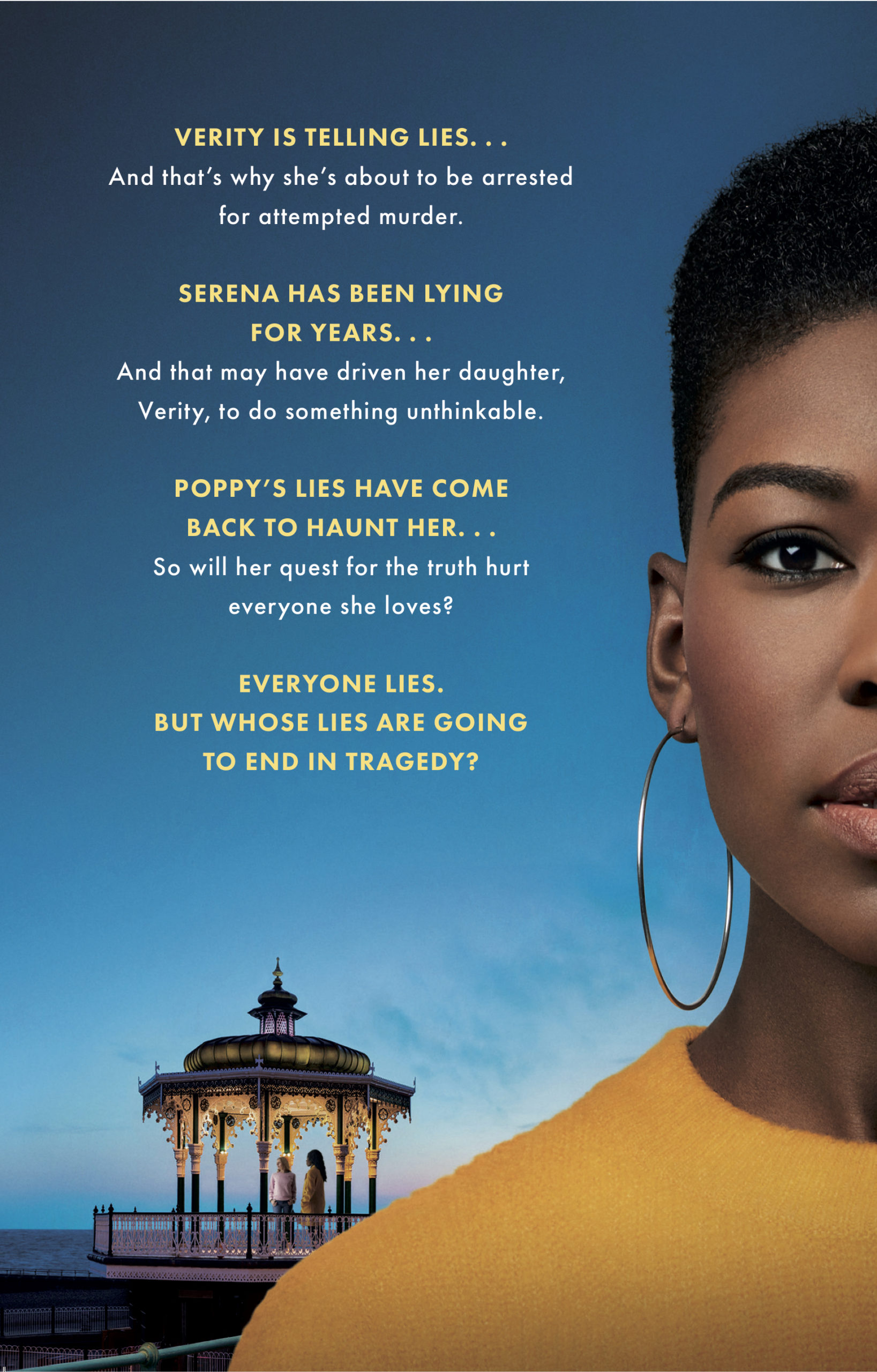 Find out more about All My Lies Are True here:
Find out more about All My Lies Are True here: 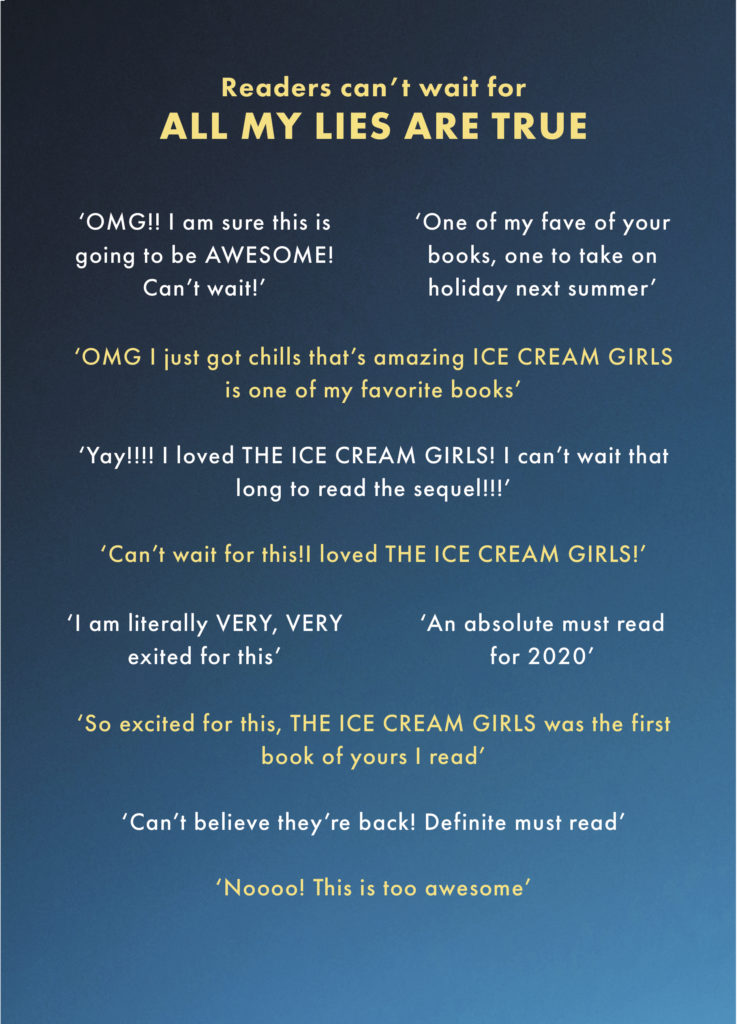
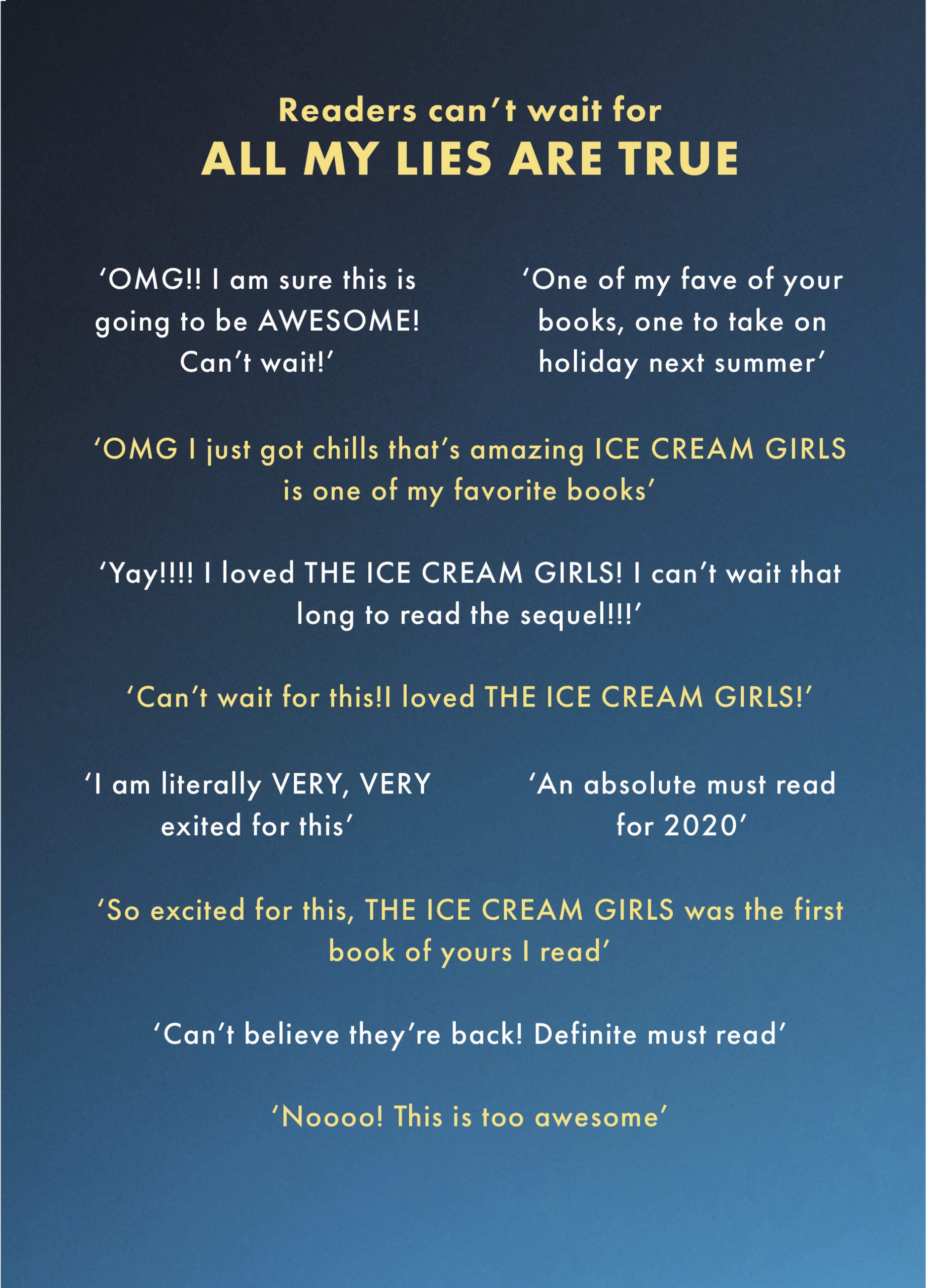
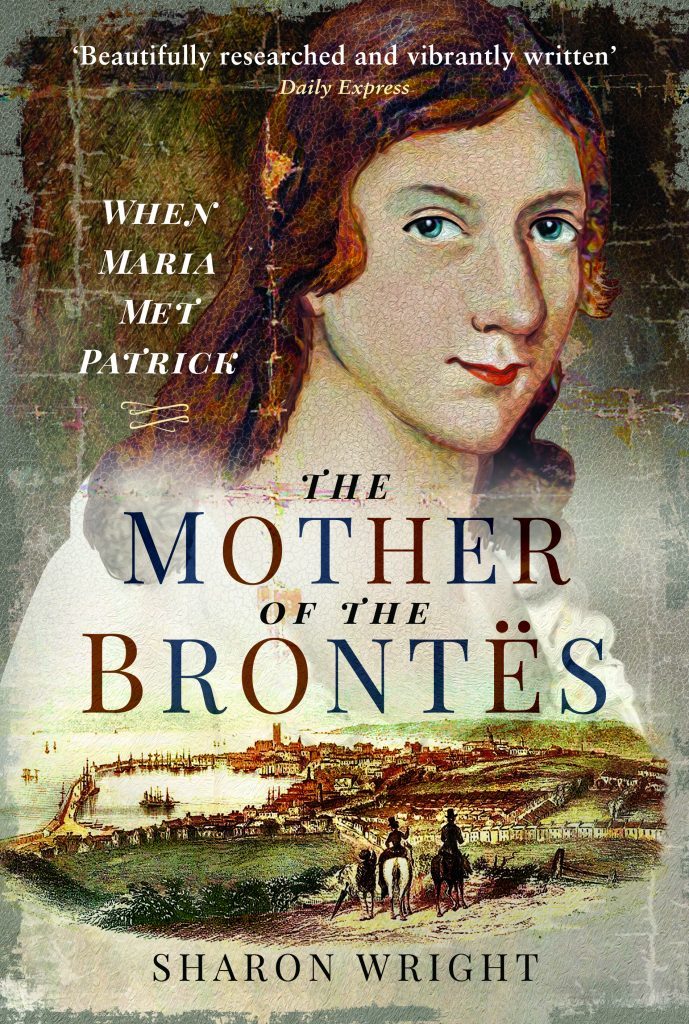
 I wrote the book that could never be written. Writing it took over my whole life for a long while but The Mother of the Brontës: When Maria Met Patrick is definitely, definitely written.
I wrote the book that could never be written. Writing it took over my whole life for a long while but The Mother of the Brontës: When Maria Met Patrick is definitely, definitely written.